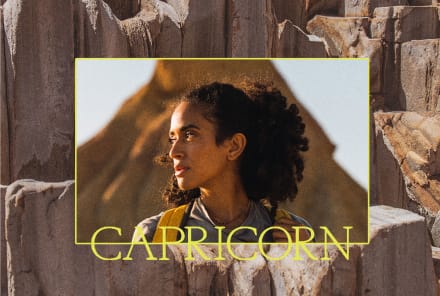Advertisement


Want to live your full number of years blessed by energy and health? A wise mentor told me long ago to find people who have achieved that goal and copy them. An example of a society whose members consistently live healthy lives to age 100 and beyond are the islands of Okinawa in Japan.
Okinawans have the distinction of perhaps the longest life span in the world, with more centenarians than any other community. For this reason, they were identified as one of the Blue Zones of exemplary longevity and vitality. Mainstays of their diet include sweet potatoes, fermented soy, bitter melon, shiitake mushrooms, burdock, jasmine tea, seaweed, and an interesting array of herbs and spices like fennel and turmeric.
What can a whole-food, plant-based diet offer you? Here are seven scientifically based reasons to make a switch to a plant-based diet; it could help you live a longer, healthier life!
1. It's naturally low in added sugar.
No food group has gotten more vilification in the last few years than added processed sugars. Studies linking our gluttony with added sugar has identified links to cancer, heart disease, diabetes, obesity and dementia. A whole-food, plant-based diet properly assembled will have no added processed sugars.
2. It's naturally low in fat.
The traditional diet in Okinawa that resulted in health and longevity had 6% total fat and 2% saturated fat. This is consistent with American College of Cardiology guidelines, updated in 2013, that recommended even more aggressive limits on saturated fats than prior statements. If you want clean arteries and a functioning brain late in life, mimicking this aspect of the Okinawan diet is wise.
3. It's naturally high in potassium.
The Western diet, replete with ultra-processed foods, is high in sodium and low in potassium and magnesium. In contrast, a plant-based diet as eaten in Okinawa is rich in potassium and magnesium and naturally low in sodium.
4. It's naturally nutrient dense.
Whole-food, plant-based diets are rich in plant omega-3 fatty acids, vitamins like C, E, A and phytochemicals that protect from free radical damage and inflammation. A recent comparison of various diets found reduced inflammation in vegans compared to other eating patterns.
5. It's naturally high in unprocessed carbohydrates and fiber.
Up to 85% of calories of the traditional Okinawan diet are derived from carbohydrates, and we aren't talking bagels, doughnuts and cakes. In addition, their diet is naturally high in plant-based fiber. In a recent analysis of almost 1 million subjects, increased intake of fiber as cereal vegetable fiber were significantly associated with lower total mortality.
6. It's naturally low in diabetes, heart disease, cancer and mortality.
Whole-food, plant-strong eating habits promote health and longevity in communities other than Okinawa. One of the strongest supportive analyses comes from Loma Linda, California, another Blue Zone with an average longevity 10 years greater than those of the rest of California. Dietary patterns emphasizing whole-food, plant-based diets there are associated with lower rates of diabetes, cancers, heart disease and overall mortality.
7. It's naturally low in pollutants.
Sadly, our environment is riddled with chemicals that may injure our health. Many studies indicate that persistent organic pollutants (POPs) and heavy metals are concentrated in fats of animals, with fish being a particular reservoir for PCBs and others contaminants such as mercury. The higher the plant content of diets, the lower the exposure to POPs.
Health is a blessing, but conflicting health messages abound and confusion has resulted. Do you count macronutrients, micronutrients, calories, or some other measure of nutrition to reach optimal health?
The easiest and most evidence-based path to feeling great every day is to eat a diet of bright colors consisting of mostly or only whole-food, plant-based sources. To learn more about how to incorporate these lifestyle tips into your daily life, check out my new online video course, Living To 100: Your Guide To Health, Happiness And Vitality.

Dr. Joel Kahn is the founder of the Kahn Center for Cardiac Longevity. He is a summa cum laude graduate of the University of Michigan School of Medicine and is a professor of medicine at Wayne State University School of Medicine. He is owner of GreenSpace Cafe in Ferndale, Michigan. His books, The Whole Heart Solution, Dead Execs Don't Get Bonuses, and Vegan Sex are all available for sale now.
More from the author:
Functional Nutrition Training
Check out Functional Nutrition Coaching
A cutting-edge nutrition deep dive taught by 20+ top health & wellness experts
Learn moreMore from the author:
Functional Nutrition Training
Check out Functional Nutrition Coaching
A cutting-edge nutrition deep dive taught by 20+ top health & wellness experts
Learn more
Dr. Joel Kahn is the founder of the Kahn Center for Cardiac Longevity. He is a summa cum laude graduate of the University of Michigan School of Medicine and is a professor of medicine at Wayne State University School of Medicine. He is owner of GreenSpace Cafe in Ferndale, Michigan. His books, The Whole Heart Solution, Dead Execs Don't Get Bonuses, and Vegan Sex are all available for sale now.
Watch Next
Enjoy some of our favorite clips from classes
Enjoy some of our favorite clips from classes
What Is Meditation?
Mindfulness/Spirituality | Light Watkins
Box Breathing
Mindfulness/Spirituality | Gwen Dittmar
What Breathwork Can Address
Mindfulness/Spirituality | Gwen Dittmar
The 8 Limbs of Yoga - What is Asana?
Yoga | Caley Alyssa
Two Standing Postures to Open Up Tight Hips
Yoga | Caley Alyssa
How Plants Can Optimize Athletic Performance
Nutrition | Rich Roll
What to Eat Before a Workout
Nutrition | Rich Roll
How Ayurveda Helps Us Navigate Modern Life
Nutrition | Sahara Rose
Messages About Love & Relationships
Love & Relationships | Esther Perel
Love Languages
Love & Relationships | Esther Perel


















